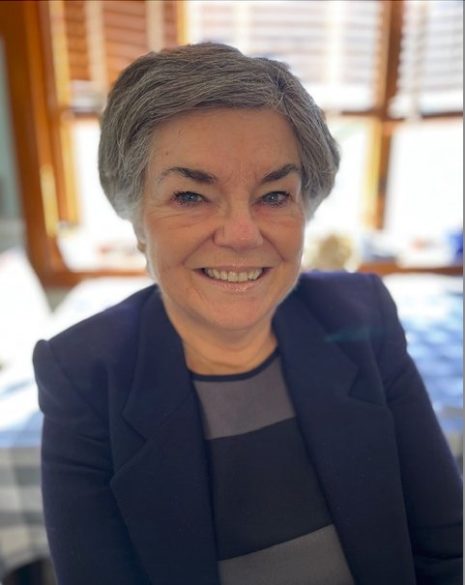FOR THE JOURNEY
By Effie Caldarola
Walking through the park on a brisk winter morning, I glance at the parking lot near the playground and notice a colorful van.
I see big letters on its side panel: “Worry First.”
Wait a minute. I look again. Actually, it says “Worry Free,” the slogan of a utility company’s appliance service. I chuckle. I’ve proven something I know about myself all too well. I am a worrier, and I just let my eyes deceive me. Is that my slogan, I wonder, “worry first?”
We all worry. We worry about the future, about all the things that could go wrong. On the one hand, it’s good to be prepared, but worrying is a spiritual problem. A very human one, but a problem nonetheless.
In Wendell Berry’s poem, “The Peace of Wild Things,” he writes of waking in the night “in fear of what my life and my children’s lives may be.” How many of us can identify with that?
Nighttime is the perfect incubator of worry.
Berry tells us that he goes into nature when these fears arise, and I believe he’s speaking metaphorically when he writes, “I go and lie down where the wood drake rests in his beauty on the water, and the heron feeds.”
His next line is one I have memorized: “I come into the peace of wild things who do not tax their lives with forethought of grief.”

How much time do we waste taxing our lives with “forethought of grief?” Of all the species in this world, we humans are the only ones who worry about all the “what ifs.” The birds of the air make nests, and they carefully find a spot to protect their eggs from predators. But they are called to this, and they do it naturally and without worry. They live in each present moment.
Once a spiritual director was encouraging me to trust God more. She mentioned Jesus’ admonition (Mt 10:29-31), “Are not two sparrows sold for a penny? And yet not one of them will fall to the ground outside your Father’s care.”
I immediately mentioned the birds that would occasionally crash into my plate glass front window. Was God caring for them? My director smiled. They died without worry, she said. No forethought of grief burdened them.
Turning away from worry does not mean our lives will be without struggle, illness, frustration and certain death. Turning away from worry means that in the moment, in each precious and passing moment, we accept the presence of God with us through it all.
In Jesuit Father James Martin’s book, “Come Forth,” about Jesus raising Lazarus from the dead, he talks about what some psychologists call “catastrophizing,” always focusing on the negative. He gives examples: “a bumpy airplane ride meant that we were crashing … a mildly critical remark from a friend meant that he hated me.”
This thinking the worst, expecting the worst or worrying about every possibility can dominate our lives.
“There’s a reason,” writes Martin, “that they call Satan ‘the Prince of Lies.’ If Satan can get you to focus on only the negatives, you are living a lie.”
Anxiety, another spiritual director told me, means a lack of trust. I was taken aback by this comment, because I know that some people are plagued by genuine anxiety for which they may need medical help.
But for the anxiety that taxes my life, the worry that exhorts payment in wasted time, wasted opportunities and lost sleep, I know that God is the answer. Making the choice in each present moment to not “worry first” is a step on the spiritual journey.
(Effie Caldarola is a wife, mom and grandmother who received her master’s degree in pastoral ministry from Seattle University.)
